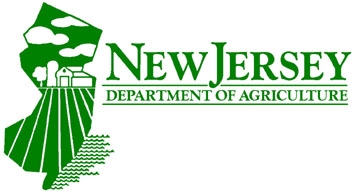Home > News > Press Releases > 2013 > HORSE FARMS IN TWO SOUTH JERSEY COUNTIES QUARANTINED AFTER HORSE TESTS POSITIVE FOR NEUROLOGIC EQUINE HERPES
HORSE FARMS IN TWO SOUTH JERSEY COUNTIES QUARANTINED AFTER HORSE TESTS POSITIVE FOR NEUROLOGIC EQUINE HERPES
Contact: Lynne Richmond
(609) 633-2954
(TRENTON) – The New Jersey Department of Agriculture has quarantined two farms, one in Franklinville, Gloucester County and one in Dennisville, Cape May County, after horses at each farm were exposed to a horse that developed the highly infectious equine herpes myeloencephalopathy (EHM).
Testing confirmed the horse developed EHM caused by Equine Herpes Virus, Type One (EHV-1). The horse became recumbent and was humanely euthanized on February 15.
This is the second case of EHM in New Jersey this year. A horse farm in Morris and another in Somerset County were quarantined in January when one horse tested positive for the disease. The sick horse has since recovered and the quarantines have been lifted. No apparent relationship between the two cases is evident.
“In these cases, the Department immediately took the appropriate preventive measures to contain the virus and stop it from spreading,” said New Jersey Secretary of Agriculture Douglas H. Fisher. “This swift action helps to prevent many more horses from becoming sick.”
The EHV-1 virus spreads quickly from horse to horse, has a high morbidity and can cause a wide range of symptoms, from a complete lack of clinical signs to respiratory problems, especially in young horses, and spontaneous abortions in pregnant mares. The neurologic form of EHV-1, additionally, can cause an acute paralytic syndrome, which results in a high mortality. The incubation period of EHV-1 is typically 2 to 10 days. The virus spreads readily through direct contact with infected materials. While highly infectious, the virus does not persist in the environment and is neutralized by hand soap, alcohol-based hand sanitizers and sunlight. The virus does not affect humans and other domestic animals, with the exception of llamas and alpacas.
Concerned owners should consult with their veterinarian prior to taking any action as the clinical signs of infection with the neurological form of EHV-1 (EHM) are common to many other diseases. EHM is a reportable disease in New Jersey. If an owner has a horse that is exhibiting neurologic signs or suspects Equine Herpes, they are directed to call their veterinarian immediately.
The NJDA Animal Health Diagnostic Laboratory provides testing for the neurologic form of EHV-1. For more information, visit www.nj.gov/agriculture/divisions/ah/prog/lab.html or call 609-406-6999.



